College Professor Cover Letter Examples

May 29, 2025
|
12 min read
Learn how to craft a compelling college professor cover letter that stands out in academia. This guide helps you showcase your teaching prowess and research skills, ensuring you pass with flying colors in your job application.
Rated by 348 people
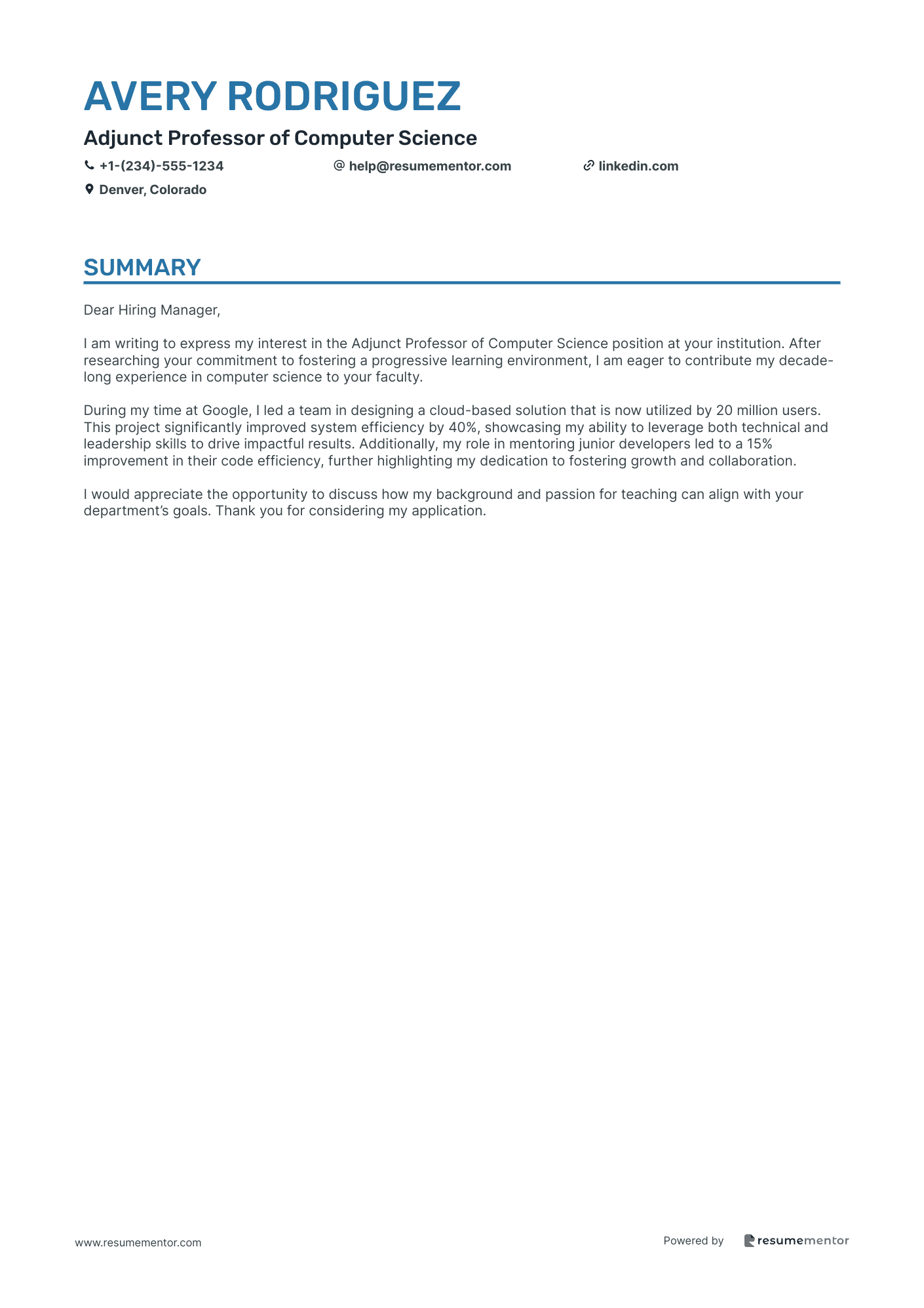
Adjunct Professor of Computer Science
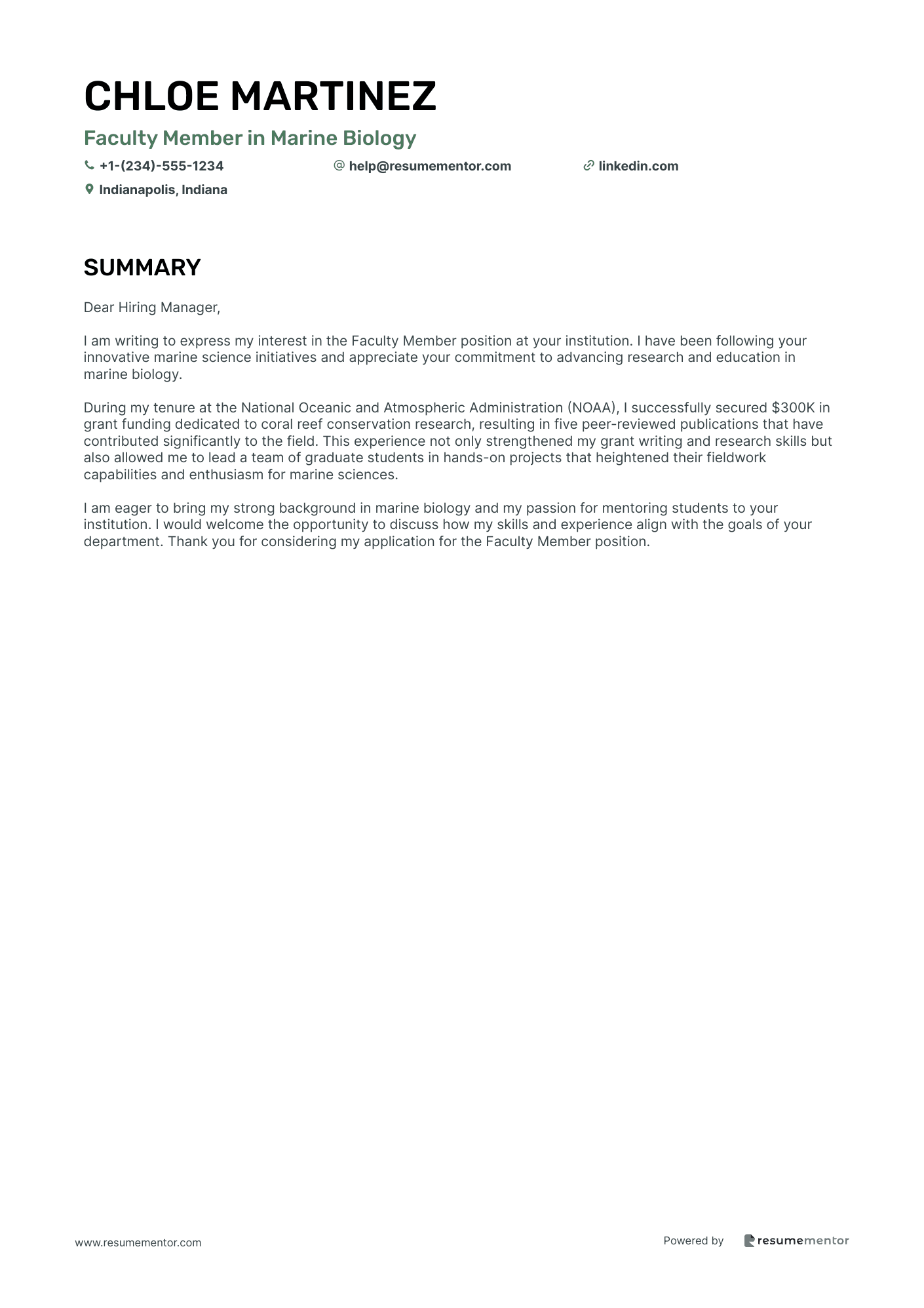
Faculty Member in Marine Biology
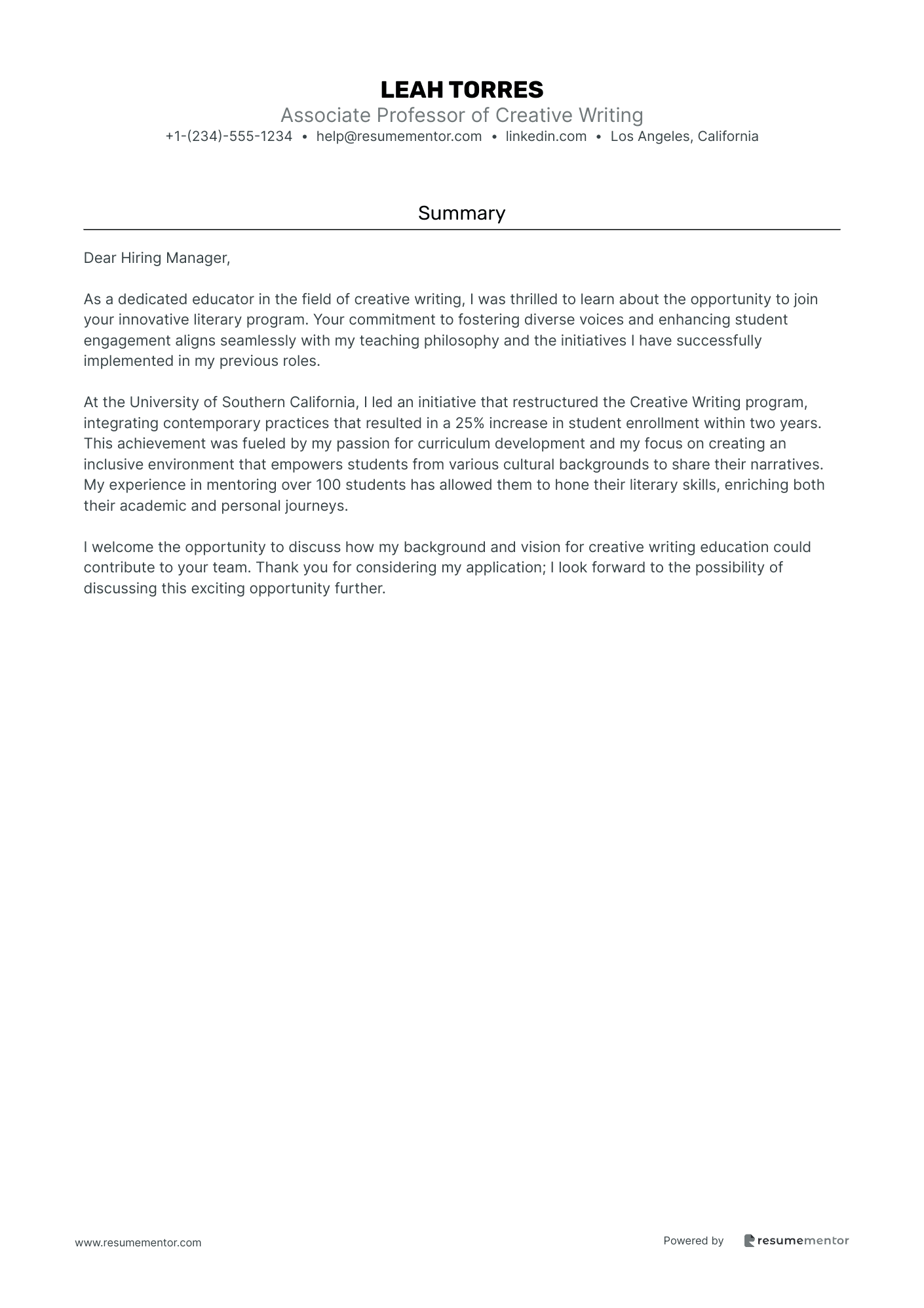
Associate Professor of Creative Writing
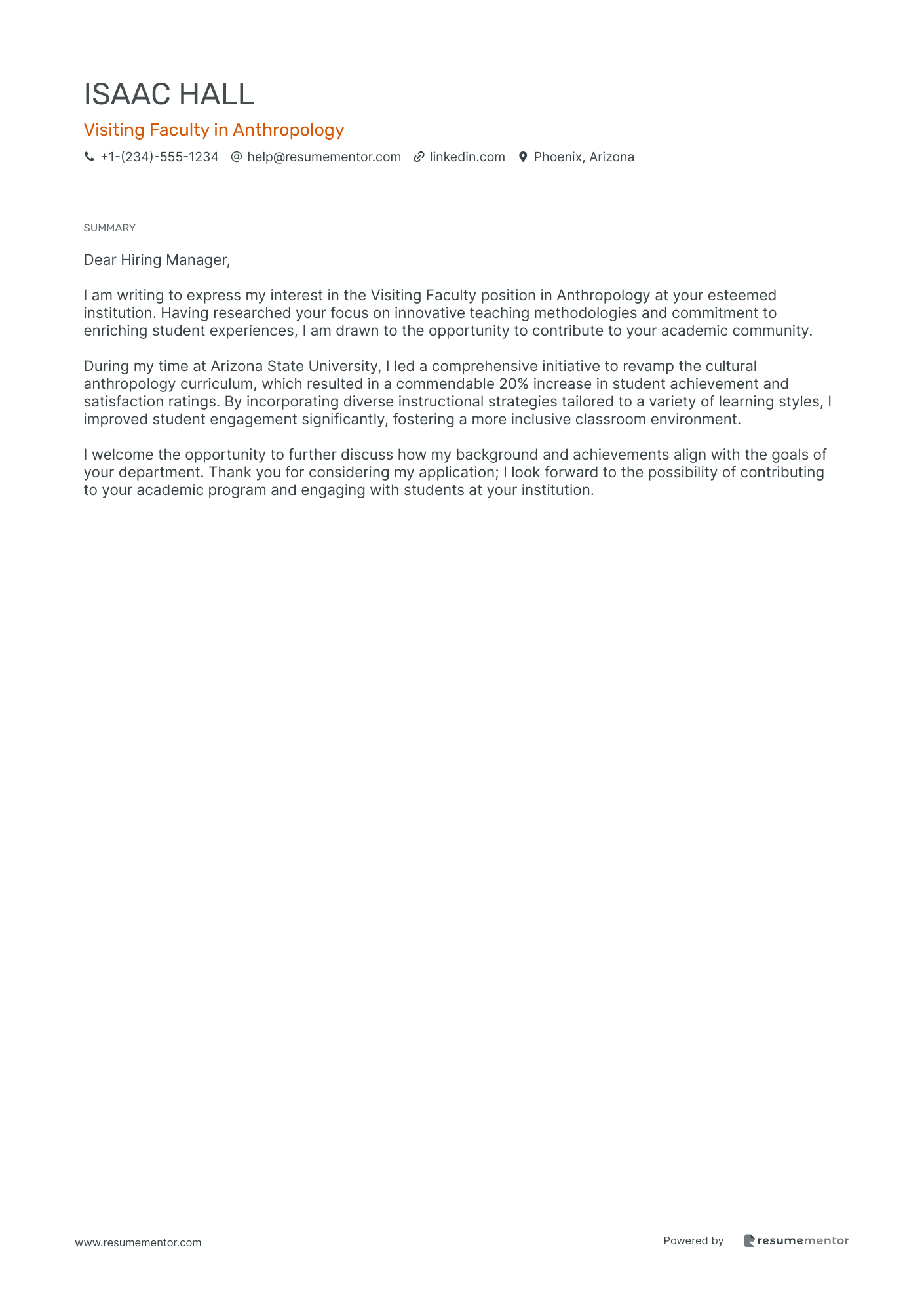
Visiting Faculty in Anthropology
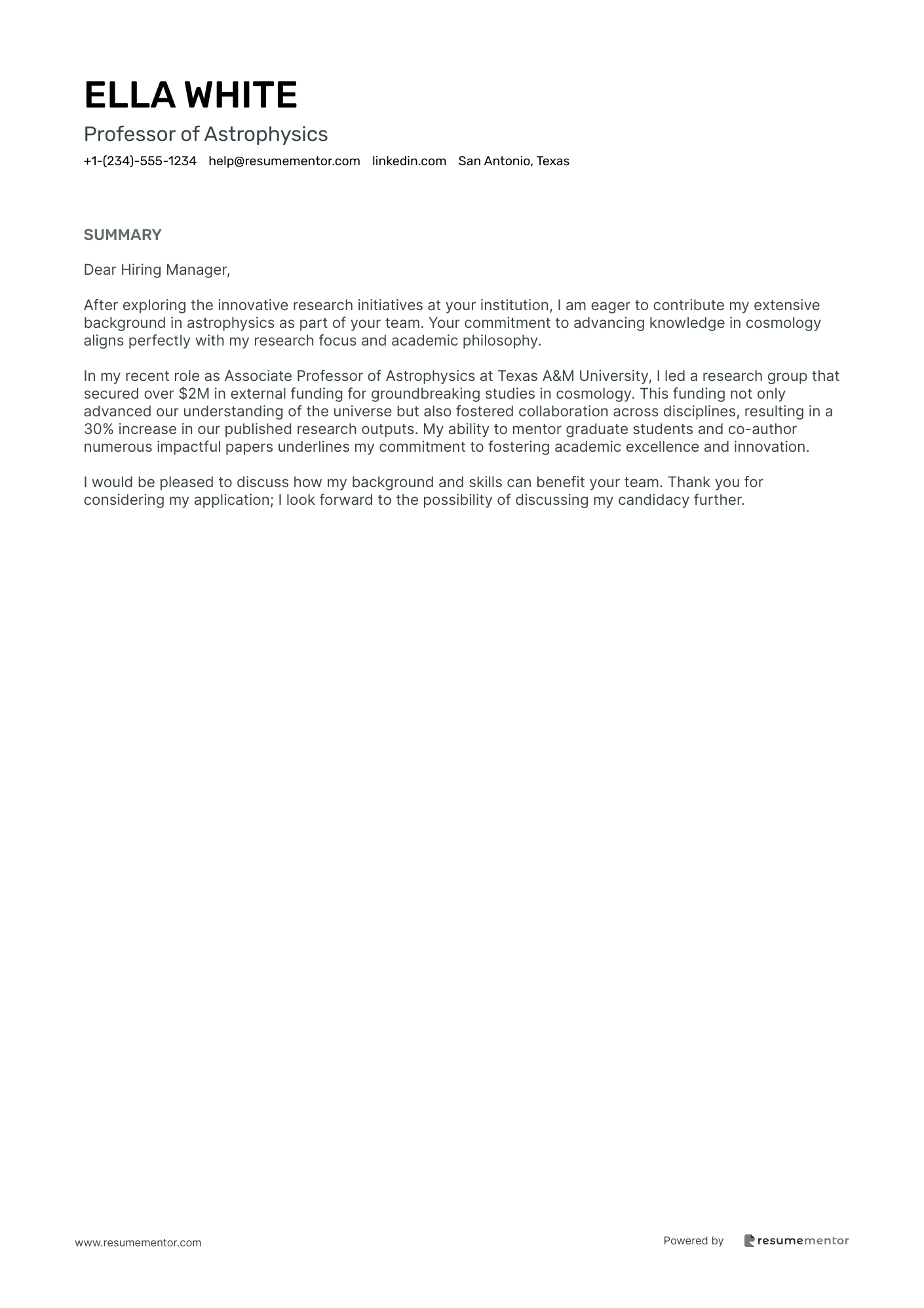
Professor of Astrophysics
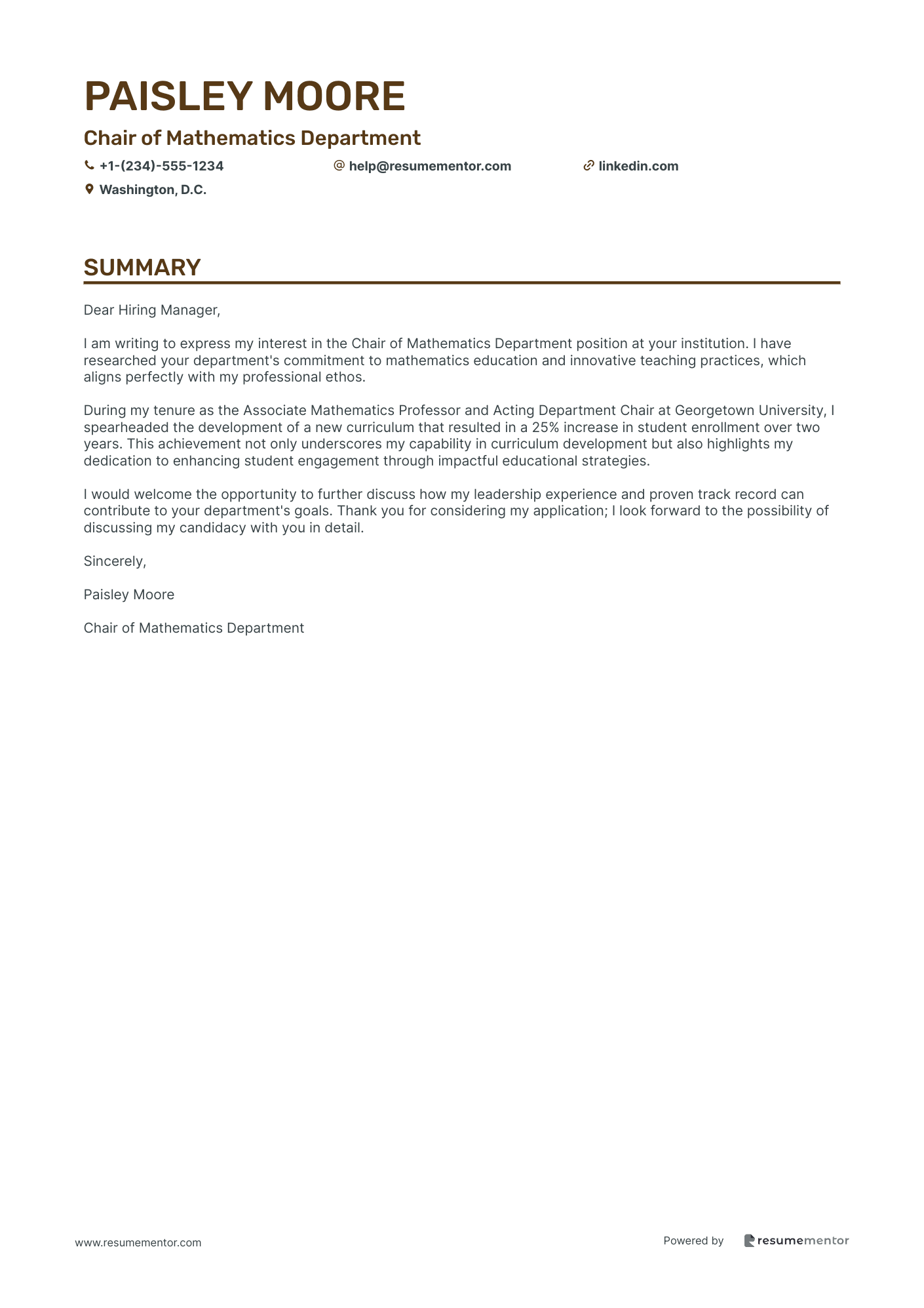
Chair of Mathematics Department
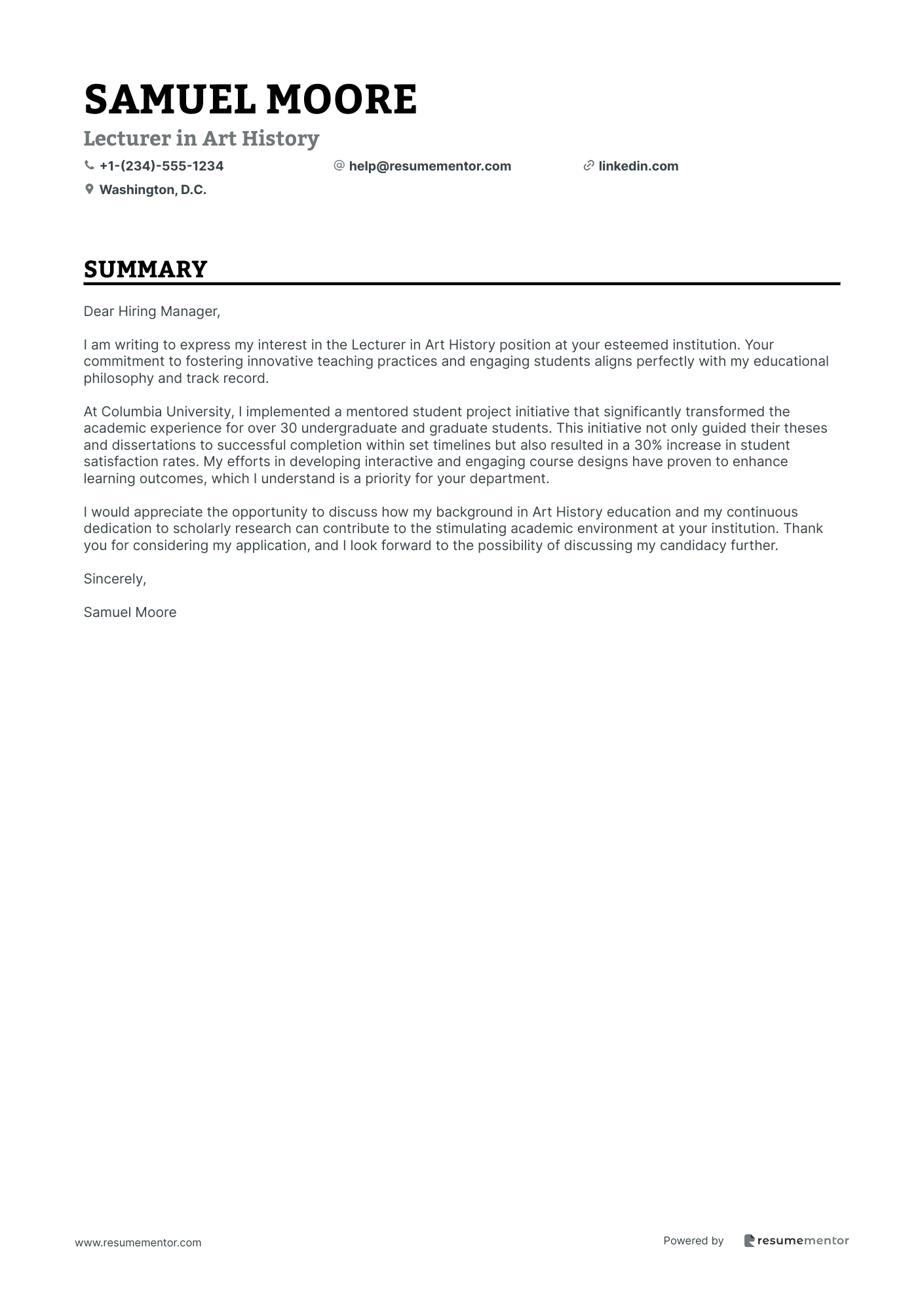
Lecturer in Art History
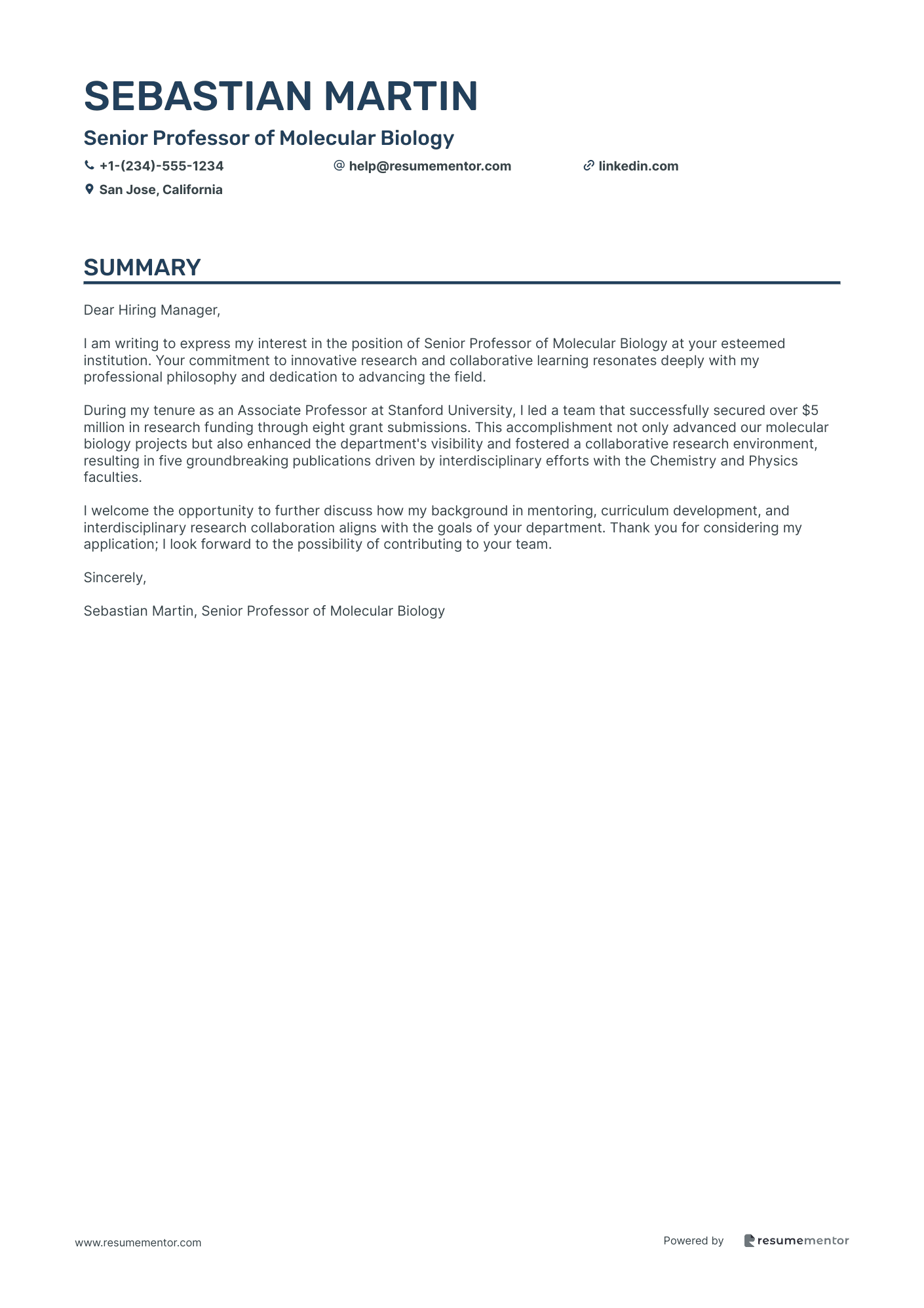
Senior Professor of Molecular Biology
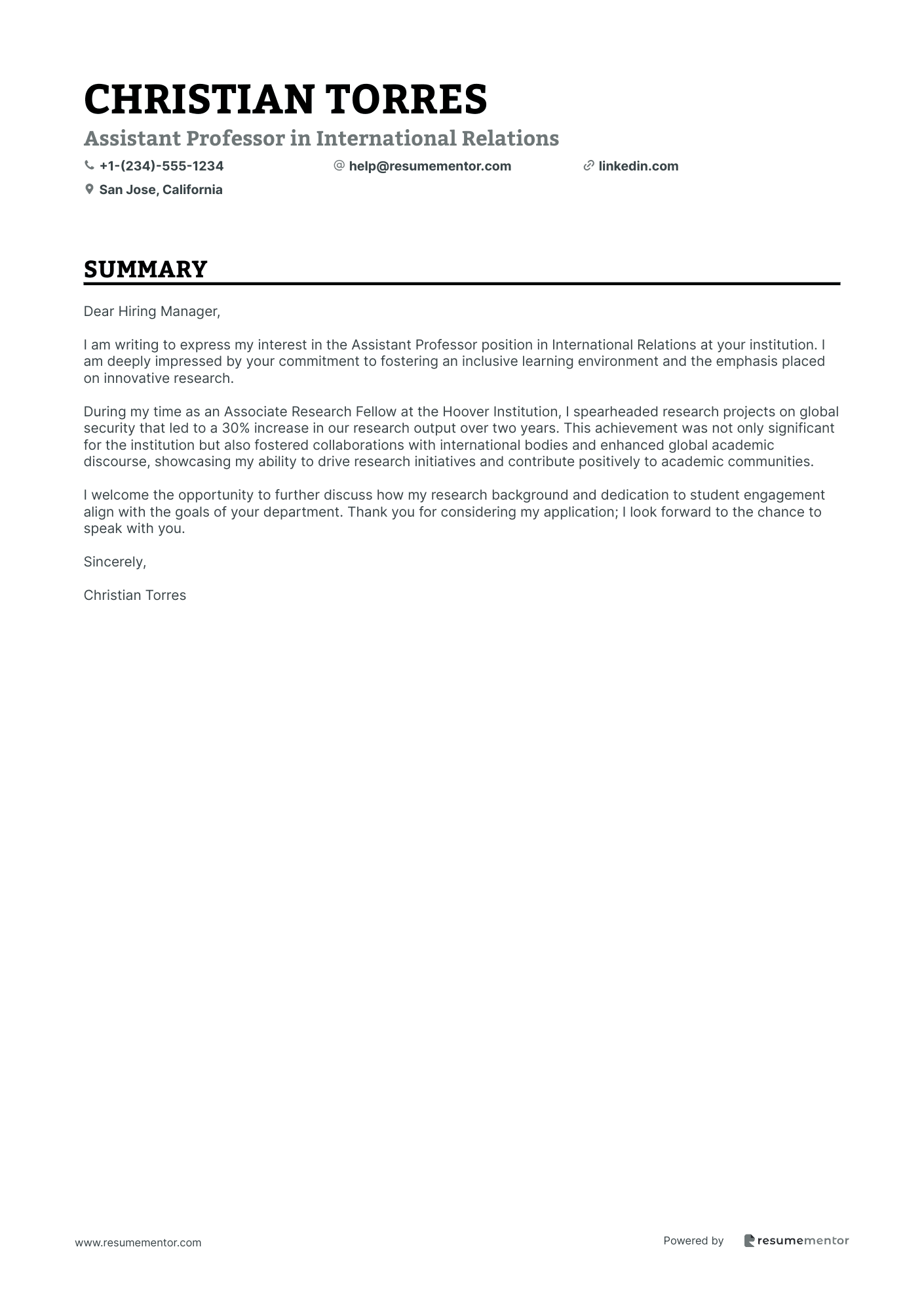
Assistant Professor in International Relations
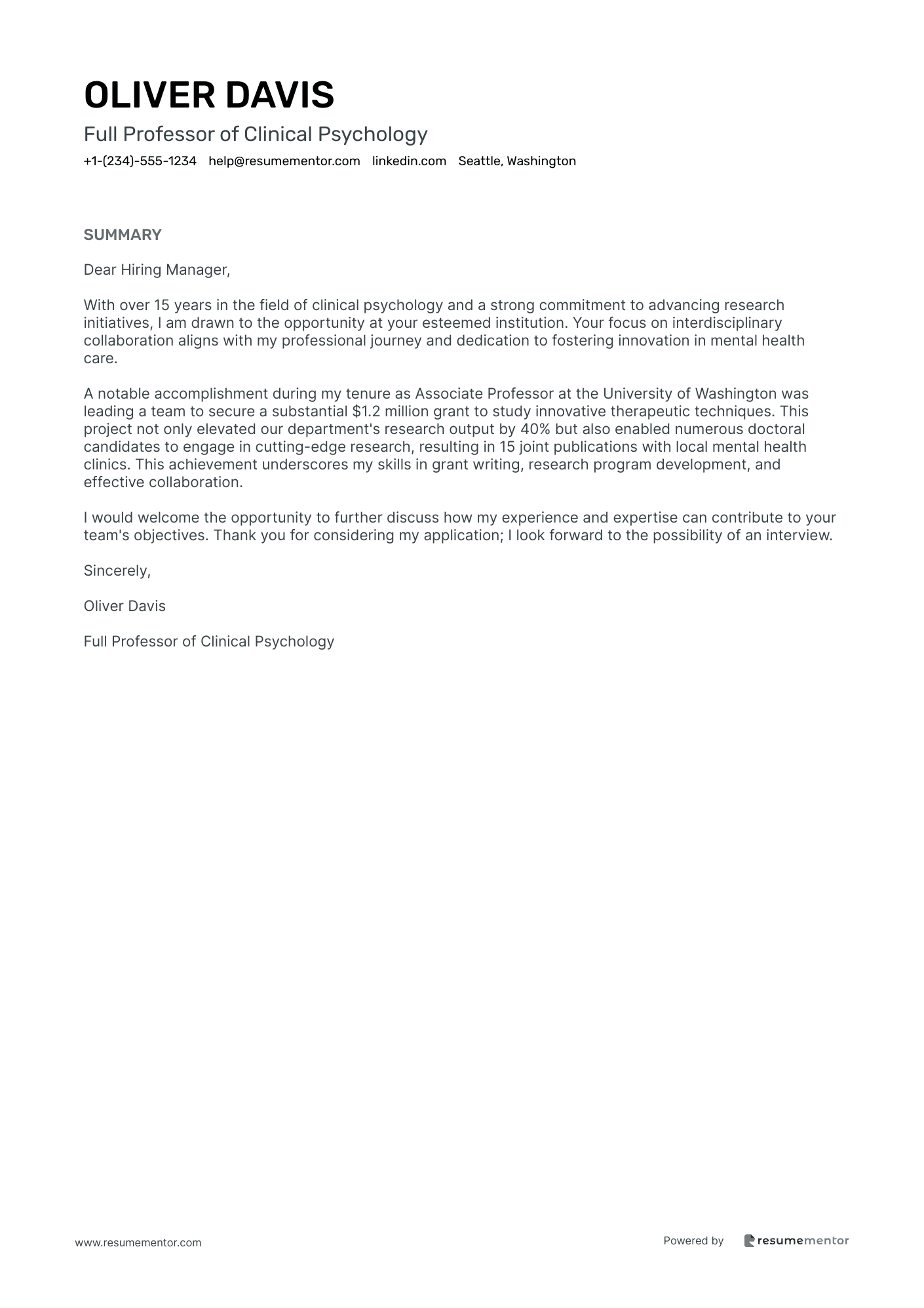
Full Professor of Clinical Psychology

Adjunct Professor of Computer Science cover letter sample
Faculty Member in Marine Biology cover letter sample
Associate Professor of Creative Writing cover letter sample
Visiting Faculty in Anthropology cover letter sample
Professor of Astrophysics cover letter sample
Chair of Mathematics Department cover letter sample
Lecturer in Art History cover letter sample
Senior Professor of Molecular Biology cover letter sample
Assistant Professor in International Relations cover letter sample
Full Professor of Clinical Psychology cover letter sample
Related Articles

Continue Reading
Check more recommended readings to get the job of your dreams.
Resume
Resources
Tools
© 2026. All rights reserved.
Made with love by people who care.
